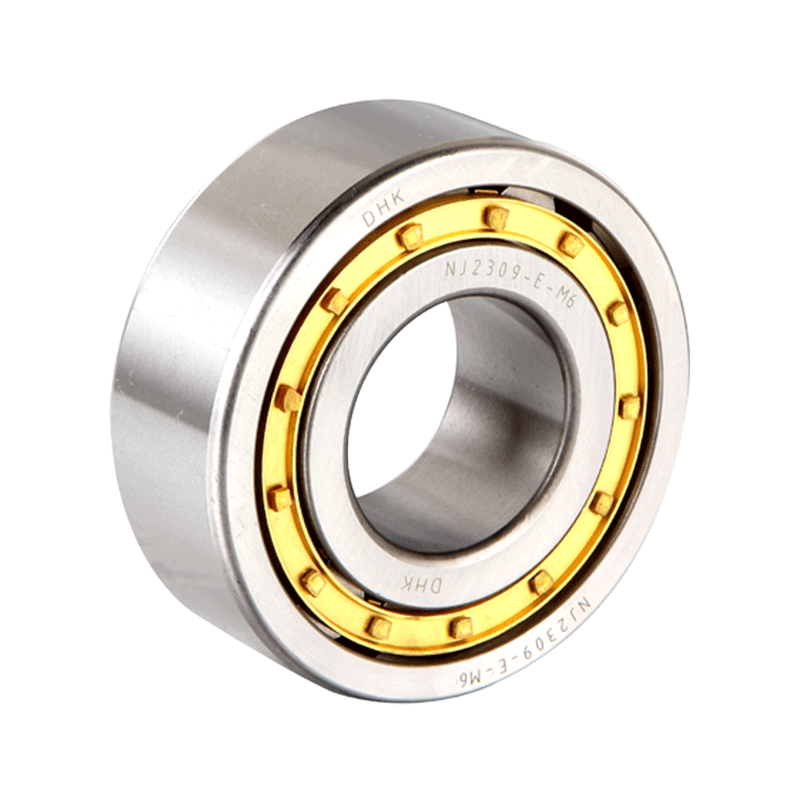Open Bearings: Open bearings refer to Single Row Cylindrical Roller Bearings that lack any external seals or shields, leaving the rolling elements and raceways exposed. This configuration is chosen primarily in applications where frequent lubrication is feasible and where the environment can be closely monitored for contaminants. Open bearings offer minimal resistance to contamination but are preferred in situations where debris management systems can effectively prevent large particles from entering the bearing. They are commonly used in clean manufacturing environments, where regular maintenance and cleanliness protocols are in place to ensure optimal bearing performance.
Contact Seals (Rubber Seals): Rubber seals are elastomeric barriers that directly contact the inner bearing race, forming a tight seal to prevent contaminants from entering the bearing. These seals effectively block moderate-sized particles, moisture, and light debris from reaching the bearing's internal components. Rubber seals are versatile and suitable for a wide range of applications where moderate contamination resistance is required. They are commonly employed in industrial machinery, automotive systems, and agricultural equipment operating in environments with moderate levels of dust and moisture.
Non-Contact Seals (Metal Shields): Non-contact seals, typically made from metal such as steel, maintain a slight gap between the seal and the inner bearing race. This design minimizes friction and heat generation while providing effective protection against larger particles and splashing contaminants. Metal shields offer superior durability and reliability in high-speed applications where frictional resistance must be minimized for optimal performance. They are commonly found in electric motors, automotive wheel bearings, and aerospace applications where operational efficiency and longevity are critical considerations.
Felt Seals: Felt seals are simple and economical solutions for applications where basic protection against dust and light splashing is sufficient. These seals are made from compressed felt fibers and are effective in environments with minimal exposure to contaminants. Felt seals are commonly used in agricultural machinery, conveyor systems, and textile manufacturing equipment where operational cleanliness can be maintained through regular maintenance practices. They provide a cost-effective solution for preventing the ingress of larger particles without compromising bearing performance.
Labyrinth Seals: Labyrinth seals employ a complex labyrinthine path created by grooves or steps on the bearing's inner and outer races. This intricate design effectively impedes contaminants by forcing them through a tortuous route, thereby preventing direct entry into the bearing. Labyrinth seals offer exceptional resistance to dust, dirt, moisture, and other external contaminants, making them ideal for demanding applications in harsh environments such as mining, construction equipment, and marine applications. They are preferred for their robust sealing performance and reliability under severe operating conditions.
Single Row Cylindrical Roller Bearings



 English
English Deutsch
Deutsch























